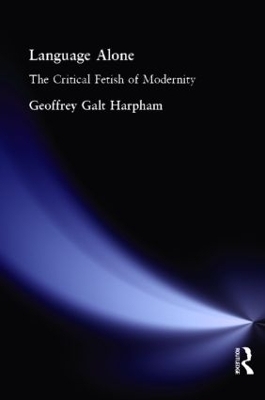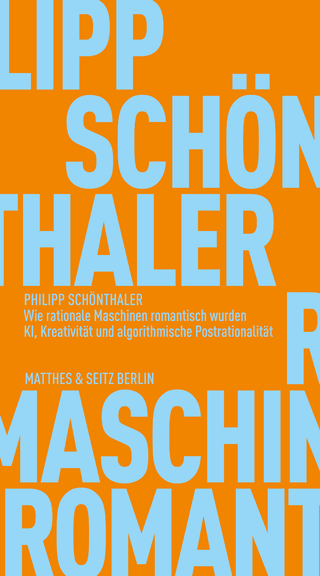
Language Alone
Routledge (Verlag)
978-0-415-94219-5 (ISBN)
How did the concept of language come to dominate modern intellectual history? In Language Alone, Geoffrey Galt Harpham provides at once the most comprehensive survey and most telling critique of the pervasive role of language in modern thought. He shows how thinkers in such diverse fields as philosophy, psychoanalysis, anthropology, and literary theory have made progress by referring their most difficult theoretical problems to what they presumed were the facts of language.
Through a provocative reassessment of major thinkers on the idea of language-Saussure, Wittgenstein, Derrida, Rorty, and Chomsky, among them-and detailed accounts of the discourses of ethics and ideology in particular, Harpham demonstrates a remarkable consensus among intellectuals of the past century and beyond that philosophical and other problems can best be understood as linguistic problems. And furthermore, that a science of language can therefore illuminate them. Conspicuously absent from this consensus, he shows, is any consideration of contemporary linguistics, or any awareness of the growing agreement among linguists that the nature of language as such cannot be known.
Ultimately, Harpham argues, the thought of language has dominated modern intellectual history because of its singular capacity to serve as a proxy for a host of concerns, questions, and anxieties-our place in the order of things, our rights and obligations, our nature or essence-that resist a strictly rational formulation. Language Alone will interest literary critics, philosophers, and anyone with an interest in the uses of language in contemporary thought.
Geoffrey Galt Harpham is Professor of English at Tulane University. His many books include On the Grotesque, TheAscetic Imperative in Culture and Criticism, Getting ItRight: Language, Literature, and Ethics, One of Us: TheMastery of Joseph Conrad, and Shadows of Ethics:Criticism and the Just Society.
Preface Chapter One: Language for Beginners 1. Turning (in)to Language 2. Saussure and the Concrete Object of Language 3. Metaphor and the Law of Return: Saussure, Derrida and Rorty 4.Language and Human Nature 5. Science and the Thought of Language Chapter Two: Ideology and the Form of Language 1. Ideology and History 2. Marxism and the Economic Specter 3. From Post-Modernism to Post-Marxism; or, It's Not the Economy, Stupid 4. Language and the Psycho-Ideological Subject 5. Inversions Chapter Three: Ethics and the Law of Language 1. Words as Guides: Modernity from Hume to Bernard Williams 2. Language as Law: On the Kantian Maxim The Irrational Law: Nietzsche, Levinas, Deconstruction Law and Language of the Unconcscious: Freud, Chomsky, Lacan 3. Words against War: The Dream of a Virtuous Language 4. Language Against the Law: Postmodernism, Feminism, and the Fundamentals of Language 5. Coda: On Culture In Conclusion: Language and Humanity Works Cited
| Erscheint lt. Verlag | 31.10.2002 |
|---|---|
| Verlagsort | London |
| Sprache | englisch |
| Maße | 152 x 229 mm |
| Gewicht | 500 g |
| Themenwelt | Geisteswissenschaften ► Philosophie ► Sprachphilosophie |
| ISBN-10 | 0-415-94219-5 / 0415942195 |
| ISBN-13 | 978-0-415-94219-5 / 9780415942195 |
| Zustand | Neuware |
| Haben Sie eine Frage zum Produkt? |
aus dem Bereich


